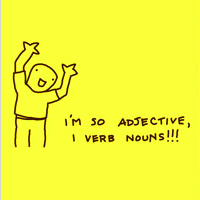 How to write a white paper that scares Google away, annoys your readers and doesn’t create any leads
How to write a white paper that scares Google away, annoys your readers and doesn’t create any leads
There’s something about writing complimentary products that get publishers all in a tizzy. Should it be repurposed content? Should it come from the blog? Should some of it be new? Should it come from your paid products? Yes, yes, yes and yes.
Your complimentary products may be the first place a reader (or potential customer) is introduced to you. If you put together a ho-hum book of words, how will you ever upsell to a paid product?
Sure, you could follow a checklist on how to write a white paper, but if you really want to go against the odds, check every one of these ways to write a really, really bad white paper off your list.
[text_ad]
1. Be really, really broad. Make sure that when the user gets to your landing page, they have absolutely no idea what they’re getting from your white paper or report. I mean it’s free, and people love to give out their email address every chance they get.
2. Make it a product for everyone! Don’t you dare do any research. Things that you just give away don’t require a target audience. So make sure you don’t target any specific industries, job titles, age groups, or income bracket.
3. Don’t set any end-goals. Sure, you could include an ad for your event at the end of the white paper. You might also decide what questions you want to answer at the end, or what the next step your reader should be taking, but that’s a little extra work and who has the time?
4. Don’t brainstorm, just write! Go where the passion takes you! Throw caution to the wind and bang out a new white paper every other day! No outlines, no rules!
5. Be aggressive. If you want sales, people cannot steal your content. I know some book publishers have made a ton of leads by letting other publishers use their free white papers as premiums, but you have values! Make sure the cover of your report lets them know if they steal any content from your book, they will be sued. While you’re at it, threaten to poach their dog too. You can’t be too careful.
[text_ad]
6. Don’t ask for any input. As Michael A. Stelzner says in his book, Writing White Papers, “The best content lives in someone else’s head. If you are not the sole content expert, interview their sources to gather a fresh perspective.” You are that expert. Don’t interview anyone.
7. Don’t do any research. With research comes too many quotes, a little too much pilfering of content, and way too much hassle. If you pretend to know everything, people will believe you! Do NOT Google anything, do NOT interview anyone, and do NOT issue any surveys or other market research. This is not a paid product; don’t spend so much time on it!
8. Be fancy, yet serious. You may want to add a few asterisks (pretty stars?) every time you really mean something in your report. Throw all grammar and punctuation aside and let your readers get accustomed to the world of emoticons and Internet slang.
9. Don’t use any keywords in your title. All of this SEO mumbo jumbo is hype. If people want your content, they will come to you. People are totally willing to sift through ten or more pages of Google results to find your very perfect product.
10. Use big words, they make you sound smart. You’ll get all the respect in your publishing circle if you make up as many words as possible. Then, to make them legitimate, create a page for them on Wikipedia and name yourself as their brainy creator.
11. Be your own editor. Only you know how this white paper should look. After all, you’ve been staring at it for so long, you’d have seen any glaring errors by now. You are the mastermind, and you don’t need an editor. Besides, typos add personality.
There, you are now an expert on writing a really, really bad white paper. It may be unorganized, it may have a few typos, no one might ever see it, but by golly it has pizazz.
Let’s hope your boss feels the same way.



I loved it! Particularly liked the “don’t share” item. Look at all of the stuff you give away – keeps me coming back and “taking suggestions”. And, yes 87% of the time, I have an editor for my weekly email reminders (the other 13% is if I forgot to send it out and it is 4 am!)
Keep up the good work.
Sorry you didn’t get a chuckle out of it, Chet. There goes my comedy career! 🙂
Irony works as humor if you really work at it. This article needed more work.